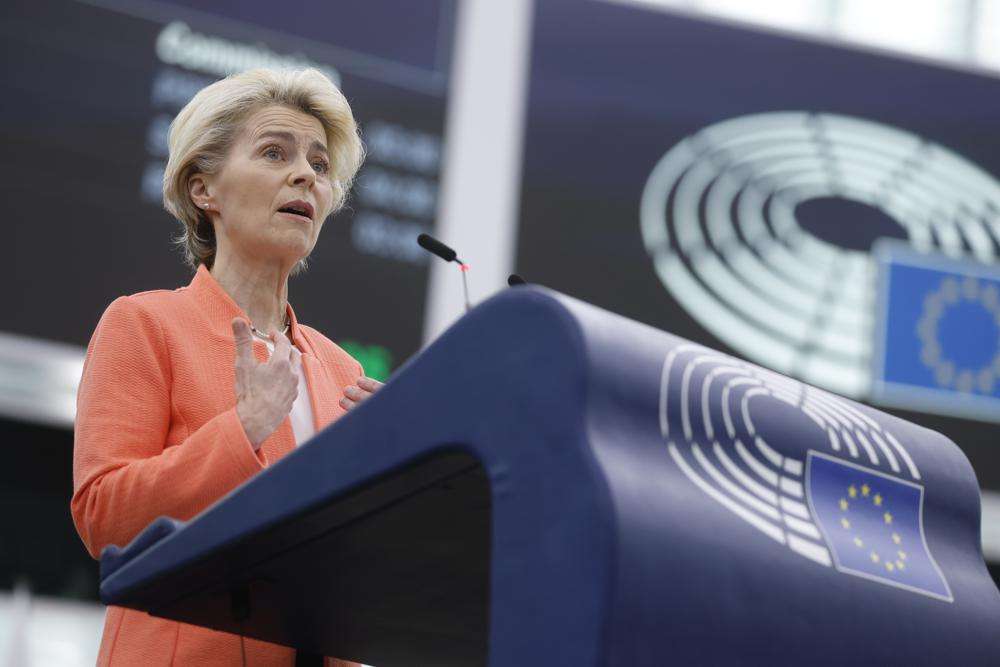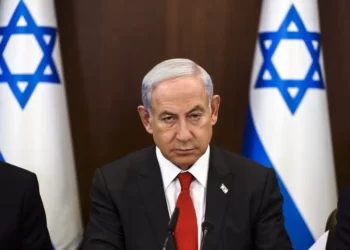The EU has reached a deal to seize profits from Russia’s frozen assets to fund weapons and aid for Ukraine within months.
“EU Ambassadors agreed in principle on measures concerning extraordinary revenues stemming from Russia’s immobilised assets,” Belgium’s EU presidency posted on X.
“The money will serve to support Ukraine‘s recovery and military defence in the context of the Russian aggression,” it added.
Euroclear, a clearing house in Brussels, holds €191bn of the €260bn of Russian Central Bank assets that were frozen by western governments in response to Russia’s invasion of Ukraine in 2022.
In February, the clearing house reported €4.4bn interest on the Russian funds and forecast that the Belgian government would reap €1.085bn in taxes.
The final amount for Ukraine has yet to be confirmed but should be available in July.
The EU, wary of the legal ramifications of seizing the entire cache of Russian assets, decided that it could give the profits to Ukraine, after concluding Moscow had no legal right to these funds.
However, finding a deal has been complicated by divisions about how to spend the money, Euroclear’s management fees and Belgium’s 25% tax on corporate profits.
During the meeting, EU senior diplomats agreed on a compromise of using the estimated €4.4bn windfall profits to aid Ukraine, smoothing over a dispute about taxation and management costs in Belgium, the country where most of the frozen assets are held.
EU member states decided that 90% of the windfall profits would go on weapons for Ukraine and remaining 10% on non-lethal aid, a split designed to assuage countries including Ireland, Austria and Hungary that cannot or do not wish to fund arms.
The diplomats also whittled Euroclear’s management fee to 0.3%, down from the original 3% proposed.
EU member states still need to officially endorse the Ambassadors’ agreement.
Welcoming the agreement, the European Commission President, Ursula von der Leyen, tweeted, “There could be no stronger symbol and no greater use for that money than to make Ukraine and all of Europe a safer place to live.”

The EU deal opens the door to a broader discussion in the G7 about using Russia’s frozen billions of assets.
However, many European nations, including Germany and France, are wary of a US plan to take charge of the assets, fearing a violation of international law.
EU Ambassadors Discuss Plans To Restrict Flow Of Russian LNG
Separately, the EU ambassadors began talks on plans to restrict the flow of Russian liquified natural gas (LNG) via Europe, as part of a 14th round of sanctions against the Kremlin’s ability to wage war.
The European Commission wants to impose restrictions on the transhipment of LNG in the EU to stop Russia exporting the highly lucrative gas to non-EU countries via EU ports.
The EU also wants to ban new investment, goods and services to build LNG terminals in the Russian Arctic. The proposals, however, stop short of a ban on Russian LNG, which unlike most pipeline gas has continued to be imported into the EU.
EU diplomats hope to get agreement on the latest sanctions before the European elections and certainly ahead of 1 July, when the Russia-friendly Hungarian government takes over the bloc’s rotating presidency.
READ ALSO: Austin Confirms Pause On U.S Weapons Shipment To Israel




















